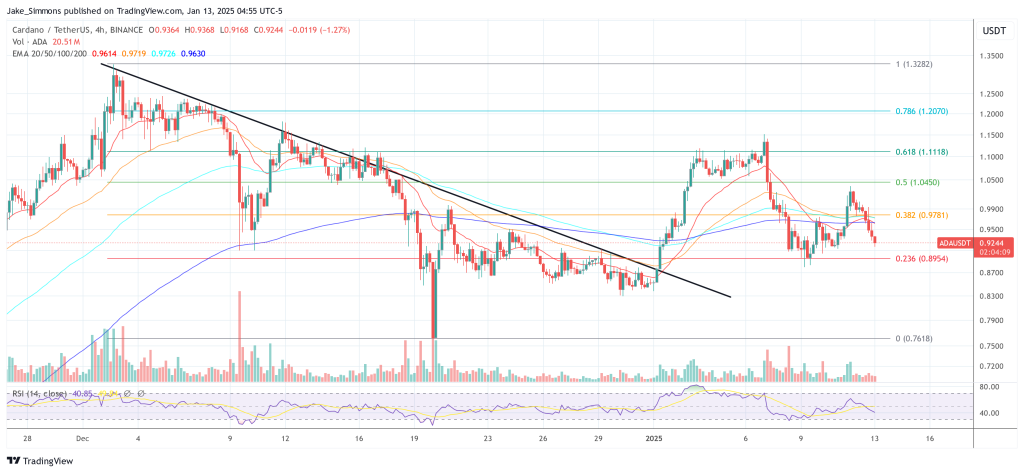
Not all consensus mechanisms are born equal — and the differences between major blockchains can have a huge effect on gas fees and transaction speeds.
How exactly does Eurus work?
This is a Layer 1 blockchain that is based on sidechain technology — by using an interoperable bridge protocol able to connect the Eurus mainnet with Ethereum or other networks.
The founders of Eurus say their goal is to deliver faster crypto transactions and payments, ensure major blockchains can communicate with one another, and tackle some of the common pitfalls that have been identified with major networks — slow transaction speeds and high gas fees among them.
This is set to be crucial in tackling the big hurdles surrounding the mainstream adoption of cryptocurrencies, all while giving the public a way to get involved in a passionate community that's fair and transparent.
How can PPoC benefit everyday users?
Beyond staking, blockchains that use PPoC can make using cryptocurrencies as an everyday payment method far more practical.
It can be frustrating when you have to wait for multiple confirmations before you receive funds on Proof-of-Work blockchains — not least because the sheer volatility of crypto means that the value of this transaction can change dramatically over this short time period.
And whenever a transaction needs to be made urgently, paying the right gas fee can be a guessing game. Too little, and miners may leave your transaction sitting in a mempool so they can focus on more profitable ones. Too much, and you're throwing away capital by spending over the odds.
Blockchain networks that use PPoC, such as Eurus, help tackle both of these downsides by ensuring transactions can be confirmed within two seconds — and there are no miners' threshold factors that need to be taken into account. Other perks include the freedom to complete cross-chain transactions, and a cutting-edge block search engine that delivers much-needed transparency.
What are the hurdles that currently stand in the way of validating transactions?
Wherever you're involved in PoW or PoS, the barriers to entry can be pretty high.
As we mentioned earlier, becoming a profitable Bitcoin miner is far from easy. There's staunch competition from giant farms with vast resources, and getting your hands on the latest equipment can be pretty expensive. What's more, with the cost of electricity rising in many parts of the world, and block rewards halving every four years, there's a real danger you could end up spending more money than you make.
Proof-of-Stake throws up a different set of challenges. Ethereum's new network requires validator nodes to stake 32 ETH — and given how this is worth tens of thousands of dollars, this is an investment that'll be out of reach of many typical consumers. These funds can also be slashed if technical issues inadvertently mean you act against the network's best interests. While it is possible to gain exposure to staking rewards for less, this means placing your trust in centralized providers.
But there can be other approaches. Some blockchain networks offer a blend of masternodes held by authorized organizations, and validator nodes that are shared between all wallet users. Here, their interests are protected through a node representative verified through the PPoC mechanism. A big benefit here lies in how everyday users won't have to worry about the technical intricacies of keeping a blockchain running smoothly, but they'll still be incentivized to stake.
How efficient are these consensus mechanisms?
There are a few ways of measuring this: Gas fees, block confirmation times, and scalability.
Each of these three factors have a crucial role to play in a blockchain's success. Proof-of-Work blockchains often see gas fees spike whenever there's a bull market, meaning that it costs more for a transaction to be processed in a timely fashion.
Conventionally, blocks in PoW can take up to 10 minutes to be finalized — but this can vary depending on mining difficulty. According to Ethereum, PoS offers a greater degree of certainty and a set tempo, with a validator being randomly chosen to create a new block every 12 seconds.
With both of these blockchains, there can be fears that those with the most hardware to dedicate to mining — or the highest amount of crypto staked — can end up dominating the block rewards. PPoC mechanisms help address this by mining blocks every two seconds, with every node being rewarded evenly. In theory, this means every participant is steadily incentivized for the contribution they're making to the network.
What are the main types of nodes in existence?
Proof-of-Work and Proof-of-Stake are arguably the best-known consensus mechanisms — but new ones are continually emerging.
PoW blockchains have long dominated the cryptocurrency landscape, with both Bitcoin and Ethereum using this model. This means miners are responsible for securing the network and validating transactions — and they get rewarded with new coins as a result.
However, a common criticism surrounding Proof-of-Work relates to how much energy it uses, and the impact such blockchains have on the environment. Miners need to use vast amounts of computing power to solve arbitrary mathematical equations. More advanced hardware has been required as the industry matured, with electricity usage surging too.
This has led Proof-of-Stake to be regarded as a more eco-friendly approach. Miners are replaced by validators — nodes that have a financial stake in the smooth running of the network. While proponents claim this can use 99% less energy than PoW, some fear PoS can lead to greater levels of centralization and censorship. Ethereum is currently in the process of moving to this consensus mechanism during The Merge — and it'll be interesting to see how this high-stakes experiment pans out.
A new approach is known as Published Proof-of-Contribution, otherwise known as PPoC for short. Here, every single participant has a role to play in ensuring the ecosystem is decentralized, democratic and well-governed.

You can get bonuses upto $100 FREE BONUS when you:
💰 Install these recommended apps:
💲 SocialGood - 100% Crypto Back on Everyday Shopping
💲 xPortal - The DeFi For The Next Billion
💲 CryptoTab Browser - Lightweight, fast, and ready to mine!
💰 Register on these recommended exchanges:
🟡 Binance🟡 Bitfinex🟡 Bitmart🟡 Bittrex🟡 Bitget
🟡 CoinEx🟡 Crypto.com🟡 Gate.io🟡 Huobi🟡 Kucoin.




















Comments